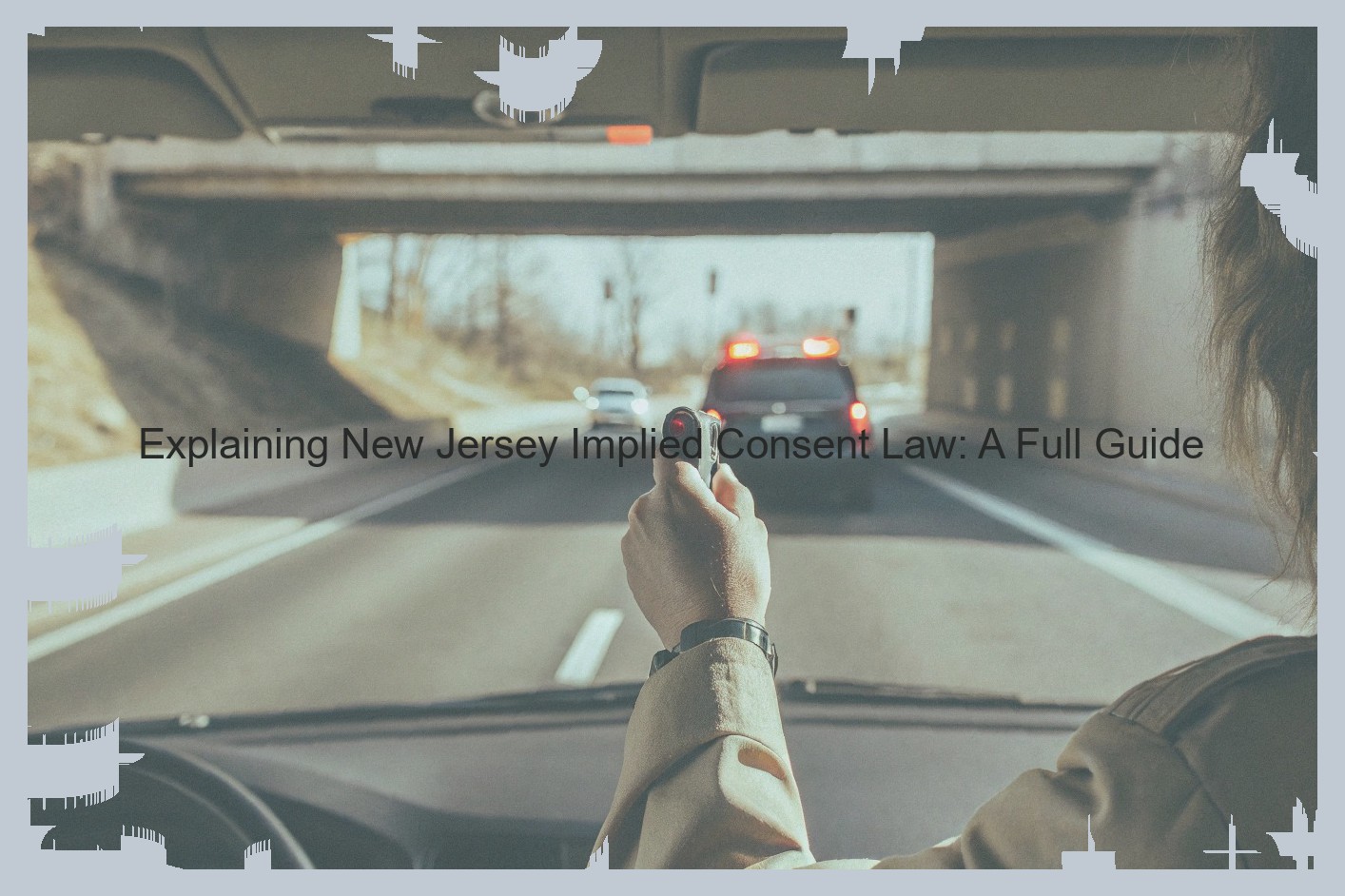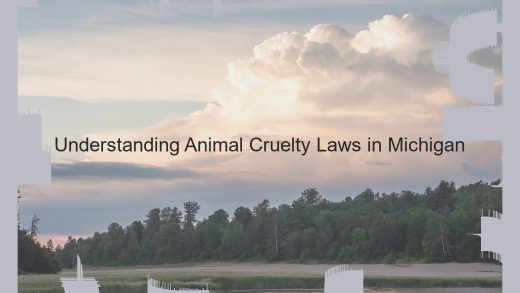Implied Consent Law Definition
Implied consent law refers to a driver’s consent to have a breath sample collected for the purpose of determining his or her BAC (blood alcohol concentration). Although drivers in New Jersey have to agree to participate in the Alcotest 7110 MKII breath testing process, the consent is presumed. It is a long-standing part of New Jersey law. N.J.S.A. 39:4-50.2 sets forth the following definition of implied consent:
"Any person who operates a motor vehicle on a highway…of this State shall be deemed to have given his consent…to submit to the chemical breath test provided in [N.J.S.A. 39:4-50.2 and N.J.S.A. 39:4-50.4]," meaning that if an officer who has established probable cause to believe that the driver was driving while intoxicated "demands a sample of the driver’s breath for the purpose of obtaining scientific evidence as to whether the driver is under the influence of intoxicating liquor, or…
The law under N.J.S.A. 39:4-50.2 and N.J.S.A. 39:4-50.4 breaks down what happens if a driver refuses the Alcotest, including the penalties a driver may face. Most people know that they have to submit to a breath test if stopped on suspicion of drinking and driving, although there are a number of exceptions. But what exactly does this mean?
Essentially, one cannot truly refuse a chemical test; it is illegal in New Jersey . Instead, a driver only has a right to decline to produce an adequate breath sample. So while someone may wish to refuse in the hopes that the Alcotest will turn out to not have sufficient evidence to test against them, refusal will result in a penalty that amounts to the DUI penalty. If a driver refuses testing – and it is an affirmative act of refusal (such as an officer requesting a second test and the driver ignoring him/her or volunteering that s/he wants something different than the Alcotest – then the driver faces the same penalties as someone who submitted to the breath test and blew over the legal limit.
Sadly, that means that even though someone has a right to refuse breath testing by declining to offer a proper sample, it almost always works against them. In other words, it could have been helpful to them, but their action to exercise their rights caused the penalties to increase rather than decrease.
In short, simply declining to give a proper sample can mean that a driver is treated the same as one who gives a sample that shows he/she is over the legal limit, even though he/she did not actually refuse. This is something a dedicated New Jersey DUI lawyer tries to avoid, but it is just the way things currently are in the state.

New Jersey’s particular Implied Consent Rules
In New Jersey, the implied consent law has very specific provisions related to breath tests and other sobriety testing. Here is a sample of the statute: "Implied Consent" means an officer has the right to request that you submit to a breath test or another sobriety test. As New Jersey law stands, if an officer sees that you were driving in an unsafe manner or performed illegal maneuvers and then a breath test shows that your blood alcohol content (BAC) is over the legal limit, you may face severe penalties. On the other hand, if you take a breath test and find that you are below the legal limit you may have your charges reduced even dropped against you. There are several more technicalities involved that a New Jersey DWI attorney will go into if you find yourself facing such a situation. N.J.S. 39:4-50.24 sets out exactly how each breath test or sobriety test is supposed to be administered. Some drivers attempt to resist the tests in hopes that it could help improve their chances in court. Under N.J.S. 39:4-50.22 however, a motorist cannot refuse a breath test. New Jersey police officers are required to inform you that failure to take a blood alcohol test is a violation of implied consent law and shall result in the same penalties as a .10 blood alcohol level.
NJ Breath Test Refusal Penalties
In New Jersey, breath test refusal carries the same penalties as if you had been convicted of Driving While Intoxicated (DWI/DUI). The penalties are outlined in N.J.S.A. 39:4-50.4, and run as follows:
First Offense
A fine of $300 to $500
Three months driver’s license suspension, with no eligibility for a special work license or probationary license
Second Offense
Fine of $500 to $1,000
A mandatory one year driver’s license suspension, with no eligibility for a special work license or probationary license
Third Offense
Fine of $1,000
A mandatory two year driver’s license suspension, with no eligibility for a special work license or probationary license
Additional Penalties
All penalties described above will be in addition to any other fines, license suspensions, and other penalties that result from a DWI/DUI conviction. This means that you will be facing mandatory jail time, possible installation of an ignition interlock device, special surcharges, and loss of your driving privileges either administratively through the Motor Vehicle Commission (MVC) or through a Judge as set forth by law.
It is also important to note that any time a driver refuses to submit to testing, their participation in the State’s Alcotest program could be prosecuted as "Obstruction" of the testing, which is a disorderly persons charge in New Jersey, akin to a criminal charge.
Legal Defenses to Implied Consent Offenses
Those who have been accused of a violation of the implied consent law may have a defense available to them. After all, there are many reasons why the police would not ask for breath sample at the scene of an accident. Under N.J.S.A. 39:4-50.4aw(3) "the operation of a motor vehicle registered by a person arrested for a violation of subsection a. of N.J.S.A. 39:4-50 shall be considered as constituting, subject only to rebuttal and the presumption of innocence, competent evidence that the person who registered the vehicle is the person arrested for a violation of section 2 of this act." In other words, if someone else registered the vehicle, it can help to establish that the person operating the vehicle did not drink alcohol and therefore was not operating a motor vehicle while under the influence of drugs or alcohol . Officers are also required to follow the procedures set forth in the statute if someone refuses to take the breath tests. If he/she fails to do so, the results of the breath tests may be inadmissible. Those procedures include: There may also be statutory defenses to implied consent law violations. For instance, although a defendant may not remember taking the breath test because he/she was unconscious when being subjected to the test, the warning must still be provided prior to administration of the test. In addition, constitutional rights violations are also defenses. Judges in New Jersey have also been known to throw out DWI cases on violations of the right to confront accusers, as mandated by the New Jersey State Constitution.
Effects on Insurance & Driving History
A first offense driving under the influence generally results in a 90 day driving suspension and 12 to 48 hours in the IDRC. There is an additional license suspension for the refusal to submit to the breath test of a period of 7 months to 1 year. This means over the course of the next 1 to 1 ½ years, the driver will be subject to losing their right to drive for a significant amount of time. If you hire an experienced DUI attorney they may be able to consolidate the DUI and refusal suspension into one suspension term so the penalties do not last as long.
The penalties for refusing to submit to the State’s breath test are separate from the penalties for DUI. In addition, DUI and the refusal to submit to a breath test each carry their own points on your driving record. Refusal to submit to a breath test can add 8 points to your license. DUI adds 3 points. This means if you are convicted of both charges, 12 points are added to your license.
A conviction for DUI carries significant penalties under New Jersey law. These include a 90 days to 1 year, in the event of a first offense; 120 days to 2 years for a 2nd offense; 180 days to 4 years for a 3rd offense; and 2 to 20 years for a 4th offense. A conviction under the implied consent law carries 7 months to 3 years with a first offense; 1 to 10 years for a 2nd offense; 2 to 20 years for a 3rd offense and 10 years minimum, to 20 years maximum for a 4th offense.
Recent Revisions & Developments in the Law
In addition to codifying the decision in State v. McNeely, the New Jersey legislature also passed two new laws dealing with implied consent. Both of these new laws became effective on August 23, 2019.
The first of these new laws is N.J.S.A. 39:4-50.4c which mandates that a driver lawfully arrested for DWI submit to a breath test even when the arresting police officer mistakenly believes that the driver is underage and therefore not subject to the penalties of underage DWI. In such cases, the driver will face only the penalties for a first offense .
The other statute, called "Amanda’s Law", adds a new N.J.S.A. to chapter 4-50, which requires new motor vehicle operators to complete an educational course on the dangers of underage drinking by age 21. The new law also includes a provision which mandates that new drivers, who reach age 21 within three years of the date on which they obtained their initial driver’s license (regardless of whether the license is provisional, special learner’s or examination permit), must complete an educational course on the dangers of underage drinking by age 24.



